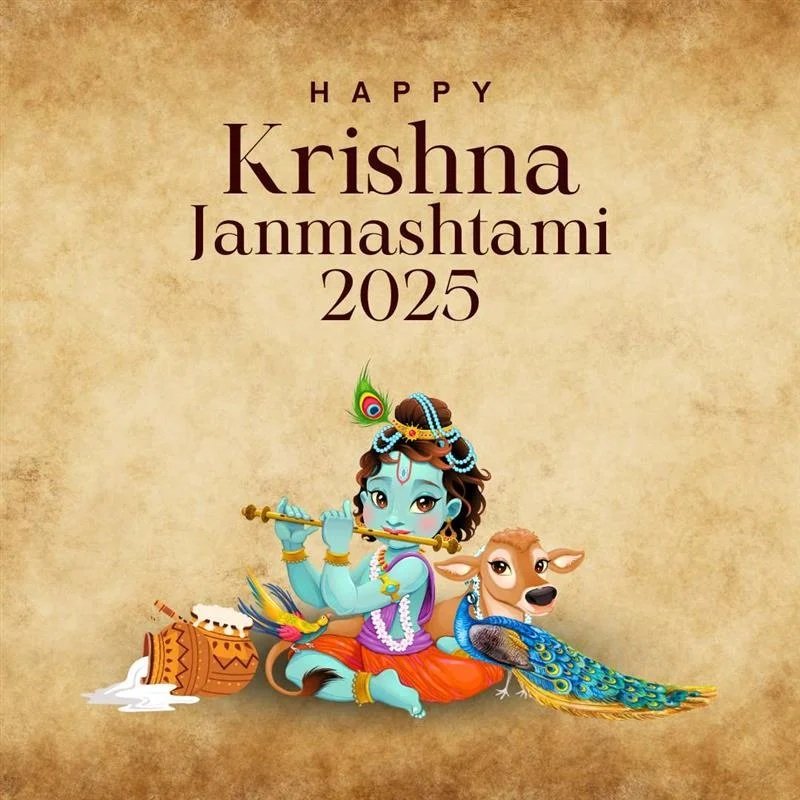Krishna Janmashtami is one of the most spiritually significant festivals in the Hindu calendar, celebrating the birth of Lord Krishna, the eighth avatar of Vishnu. This occasion is marked with devotional songs, fasting, temple rituals, and cultural performances across India and many parts of the world. Devotees observe this festival by reading Bhagavad Gita verses, engaging in Dahi Handi celebrations, and participating in midnight pujas — the believed time of Krishna’s birth. Krishna Janmashtami 2025 is expected to witness grand celebrations, drawing devotees together in joyous devotion and vibrant festivity.

Krishna Janmashtami 2025 Date
In 2025, Krishna Janmashtami falls on Sunday, 14 September 2025. The celebration follows the Hindu lunar calendar, specifically the Ashtami (eighth day) of the Krishna Paksha (dark fortnight) in the month of Bhadrapada. Devotees begin preparations days in advance, decorating homes and temples with flowers, lights, and peacock feathers, which symbolize Lord Krishna’s charm and playfulness. Since the timing of the festival is linked to both astrological alignments and sunset-moonrise calculations, the main rituals are typically performed at midnight. This sacred timing reflects the divine moment when Lord Krishna is believed to have taken birth in Mathura.
Traditional Celebrations and Rituals
Krishna Janmashtami 2025 will see temples and households organizing elaborate pujas, bhajans, and Raslila enactments depicting Krishna’s life stories. Many people observe Nirjal fasts, refraining from food and water until midnight, breaking the fast only after the symbolic birth of Krishna. Devotees decorate cradles with baby Krishna idols, while children often dress as Krishna and Radha, adding to the festive mood. In cities like Mumbai, the Dahi Handi event — where young men form human pyramids to break an earthen pot filled with curd — is a major crowd-puller, symbolizing Krishna’s love for butter. This day is both a spiritual reflection and a joyful celebration of divine playfulness.
Significance and Modern Observance
Beyond its religious importance, Krishna Janmashtami holds cultural and philosophical value. Lord Krishna’s teachings in the Bhagavad Gita continue to inspire millions with messages of dharma, karma, and bhakti. In 2025, with more people turning to spiritual mindfulness and cultural heritage, Janmashtami will likely see increased engagement on social media, live-streamed temple events, and digital participation for devotees across the globe. Families come together to chant Krishna mantras, perform aarti, and share prasadam (sacred food offerings), making this day not only a personal spiritual journey but a community-wide celebration of divine love and wisdom.
